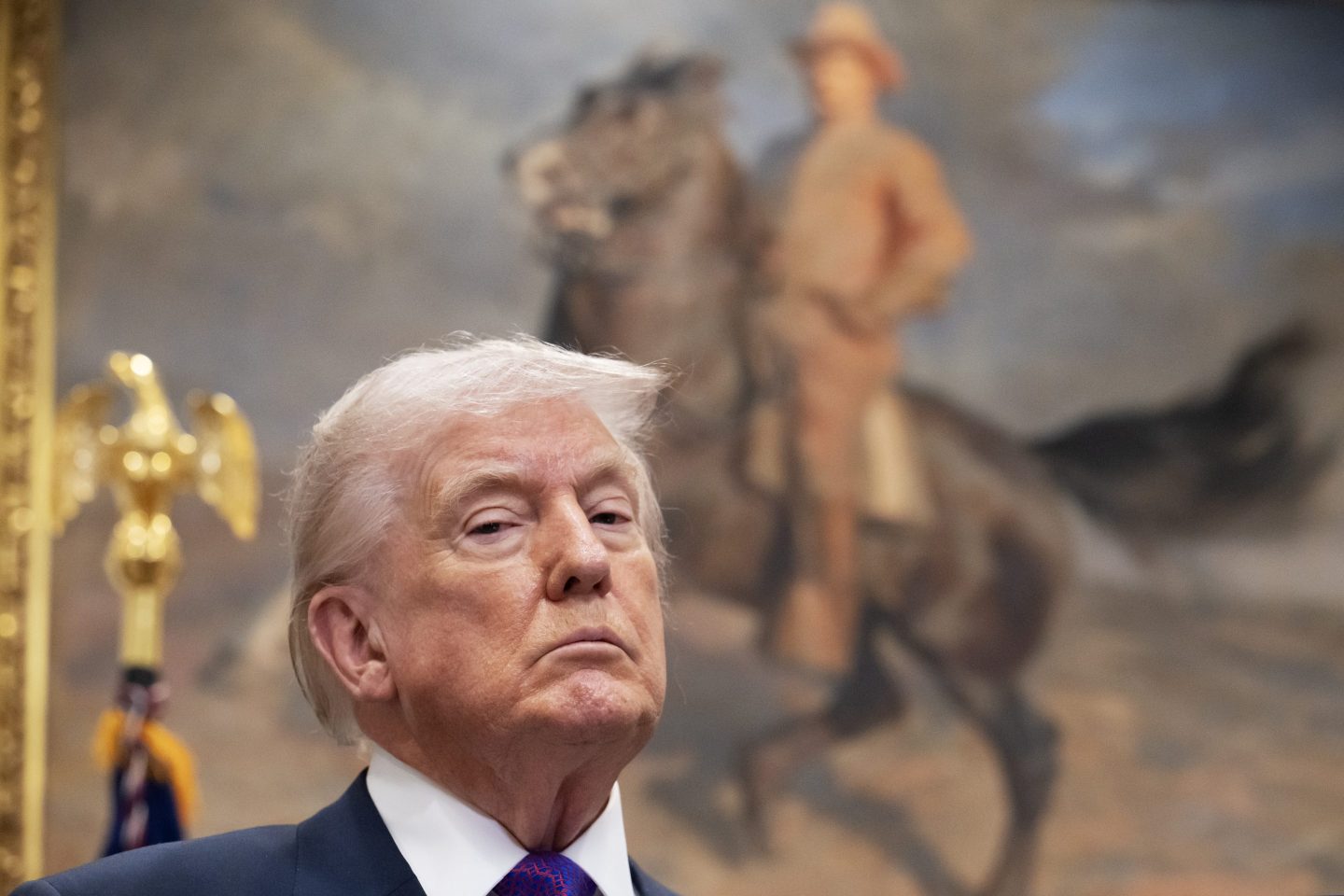Congress’s bipartisan push to force ByteDance to sell TikTok or face a U.S. TikTok ban—the far likelier outcome, given China’s opposition to a sale—has turned into a bizarrely important moment for U.S. politics.
The House plans to vote on the bill tomorrow, just a week after it was introduced by members of the Select Committee on the Chinese Communist Party—the committee approved the bill 50–0 on Thursday. Under the fast-tracking procedure, the bill would need two-thirds of House votes to pass. There’s no accompanying Senate bill just yet, but President Joe Biden has thrown his weight behind the measure.
However, his opponent in the upcoming election has taken the opposite stance. That’s a little surprising, as former President Donald Trump himself tried to force a TikTok divestiture when he was in office. Since Friday, Trump has repeatedly said he opposes a TikTok ban on the grounds that it would strengthen Facebook, which he classifies as “an enemy of the people”—even though he still believes TikTok poses a national security threat because of its Chinese links.
It’s not easy to divine Trump’s precise motivation here. It could really be because he hates Mark Zuckerberg and Meta, whose Instagram app (rather than Facebook) would be the obvious beneficiary of TikTok’s American exit. It could also be to spite Biden and/or hoover up the votes of younger people who, Trump says, will “go crazy without” TikTok.
Or it could be a by-product of Trump’s recent rapprochement with the conservative Club for Growth and its big backer, the billionaire TikTok investor Jeff Yass, with whom Trump reportedly met last month. (The Club for Growth is paying former Trump aide Kellyanne Conway to lobby for TikTok on Capitol Hill.) Trump certainly needs to make nice with big GOP donors, as he’s currently at a disadvantage to Biden on the funding front. Maybe it even has something to do with his daughter Ivanka recently setting up a TikTok account, though that’s relatively unlikely.
Whatever’s behind it, Trump is in the unusual position of being aligned with Squad members like Democratic Reps. Alexandria Ocasio-Cortez (N.Y.) and Ilhan Omar (Minn.) on the TikTok issue, and the many Republican lawmakers who want the app banned are now in a real quandary.
He may not be an elected representative, but Trump has now taken over the GOP, having recently installed his people at the top of the Republican National Committee. Defying him is verboten these days—as evidence, Politico points to the recent farce around the border security bill, in which coauthor Kentucky Republican Sen. Mitch McConnell ended up being forced to oppose his own work. Nonetheless, it appears Speaker Mike Johnson (R-La.) and other top House Republicans are pressing ahead.
When the TikTok bill appeared last week, I wrote it would face an uphill battle because of the same issues that dogged similar efforts in the past, namely TikTok’s popularity among young voters and a ban’s potential clash with the First Amendment. I was not expecting the bill to be fast-tracked to such a degree, and I certainly wasn’t expecting Trump to turn the affair into another test of his grip on Republican lawmakers. Who knows what happens now?
More news below.
David Meyer
Want to send thoughts or suggestions to Data Sheet? Drop a line here.
NEWSWORTHY
Midjourney bans Stability AI staffers. There’s high drama in the world of image-generation services. According to a report by The Verge, Midjourney has banned employees of rival Stability AI from using its service, alleging that a recent server outage was caused by “botnet-like activity” from their accounts, in which “someone at Stability AI was trying to grab all the prompt and image pairs in the middle of a night on Saturday.” Stability CEO Emad Mostaque said he’s looking into it, and the company hadn’t ordered any such action.
Meta sues ex-VP. Meta has sued former infrastructure vice president Dipinder Singh “T.S.” Khurana, who jumped ship to a stealth AI startup in mid-2023. The Facebook parent alleges that Khurana stole a “trove of proprietary, highly sensitive, confidential, and nonpublic documents about Meta’s business and employees” as he left, Bloomberg reports. Per Meta, at least eight of the employees whose information was in the documents then followed Khurana to his new venture.
Apple EU app distribution. Apple is rolling out another change to how iOS apps can be distributed in the EU. It said today that people will be able to download apps directly from the developer’s website rather than having to go to an app store. Also, third-party app stores—which are being allowed to comply with the EU’s new Digital Markets Act—will now be permitted to only offer apps from the developers that set them up.
Gig workers’ rights. The EU’s member states have thrown their weight behind a version of the new Platform Work Directive that would allow them to decide for themselves if gig workers for companies like Uber and Deliveroo are employees or not. As Al Jazeera reports, this is a watered-down version of the law, an earlier draft of which would have been likely to grant employee status to many gig-economy workers. However, the new version will still put the onus on the platforms to demonstrate that their workers aren’t employees.
SIGNIFICANT FIGURES
900 million
—The number of Telegram monthly active users, as divulged by CEO Pavel Durov in a Financial Times interview, in which he also said the messaging and social media app was nearly profitable and may launch an IPO.
IN CASE YOU MISSED IT
Sam Altman’s OpenAI comes out swinging against ‘incoherent’ and ‘frivolous’ Elon Musk in new lawsuit, by Christiaan Hetzner
Half of Elon Musk’s charitable spending appears to benefit tycoon’s empire, including a tiny nonprofit school full of his own children, by Christiaan Hetzner
Tesla rated ‘poor’ in automated driving safety test, with only 1 out of 14 manufacturers given ‘acceptable’ score, by the Associated Press
Gen AI apps are cloning your likeness without consent—and might make you famous for all the wrong reasons, by Alexandru Voica (Commentary)
Exclusive: Top Redditors who want to get in on Reddit’s upcoming IPO have until March 18 to fund the purchase, by Rachyl Jones
BEFORE YOU GO
Spy cars. The New York Times has a troubling article about how many cars these days are sending driving data to insurance companies without drivers’ knowledge, sometimes leading to surprising increases in their insurance. Cornell University law professor Frank Pasquale: “Because it’s not within the reasonable expectation of the average consumer, it should certainly be an industry practice to prominently disclose that is happening.”
This is the web version of Data Sheet, a daily newsletter on the business of tech. Sign up to get it delivered free to your inbox.












